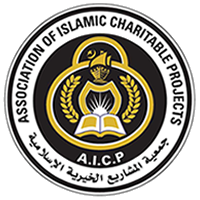Habashis
|
The Association of Islamic Charitable Projects
جمعية المشاريع الخيرية الإسلامية jam'iyyat al-mashari' al-khayriyya al-Islamiyya |
|
|---|---|
 |
|
| Leader | Shaykh Hussam Qaraqira |
| Founded | 1983 Beirut, Lebanon |
| Headquarters | Various |
| Ideology |
Religious pluralism Neo-Traditionalism Apolitical Anti-Salafi |
| Religion | Sunni Islam (Ash'ari, Sufi) |
| Website | |
| www.aicp.org | |
Al-Ahbash (Arabic: الأحباش / al-aḥbash / English: "The Ethiopians"), also known as the Association of Islamic Charitable Projects (AICP) (Arabic: جمعية المشاريع الخيرية الإسلامية / jam'iyyat al-mashari' al-khayriyya al-Islamiyya) is a Sufi religious movement which was founded in the mid-1980s. The group follow the teachings of Ethiopian scholar Abdullah al-Harari. The AICP claims to run its Islamic schools being affiliated with Al-Azhar, a claim which has been denied by Al-Azhar. Due to the group’s origins and activity in Lebanon, the Ahbash have been described as the "activist expression of Lebanese Sufism".
The Association of Islamic Charitable Projects was founded in the 1930s by Ahmad al-Ajuz, According to Gary Gambill the AICP arrived in Lebanon in the 1950s, where he says "they blended Sunni and Shi'a theology with Sufi spiritualism into a doctrinal eclecticism that preached nonviolence and political quietism". The AICP remained without a leader until the 1980s when Abdullah al-Harari became the nominal head of the organization. and was taken over by Al-Ahbash in 1983.
Al-Ahbash was founded in the suburb of Bourj Abu Haidar, in West Beirut, as a small philanthropic and spiritualist movement among the Sunni lower classes. From there they spread throughout Lebanon to Tripoli, Akkar and Iqlim Al-Kharrub in the Chouf, where they founded educational and religious institutions. Beginning in the 1990s, Ahbash propelled from a minority group to the largest Sunni religious organization in Lebanon mainly due to Syrian government backing—having close links to Syrian intelligence. The Syrians supported and promoted the Ahbash in order to limit the influence of radical and fundamentalist Sunni movements in Lebanon. There growth was also aided by the forcible seizure and control of many prominent mosques in West Beirut in the early 1980s, despite the protests of Dar al-Fatwa (the official body for Lebanon's Sunni Muslims). At the end of the 1990s there were close to 250,000 Ahbash members worldwide, according to a high-ranking Ahbash activist. While the Ahbash still owe their original growth to the Syrians, politically, they are in an undeclared alliance with Mustaqbal, perhaps for reasons of current political expediency.
...
Wikipedia
